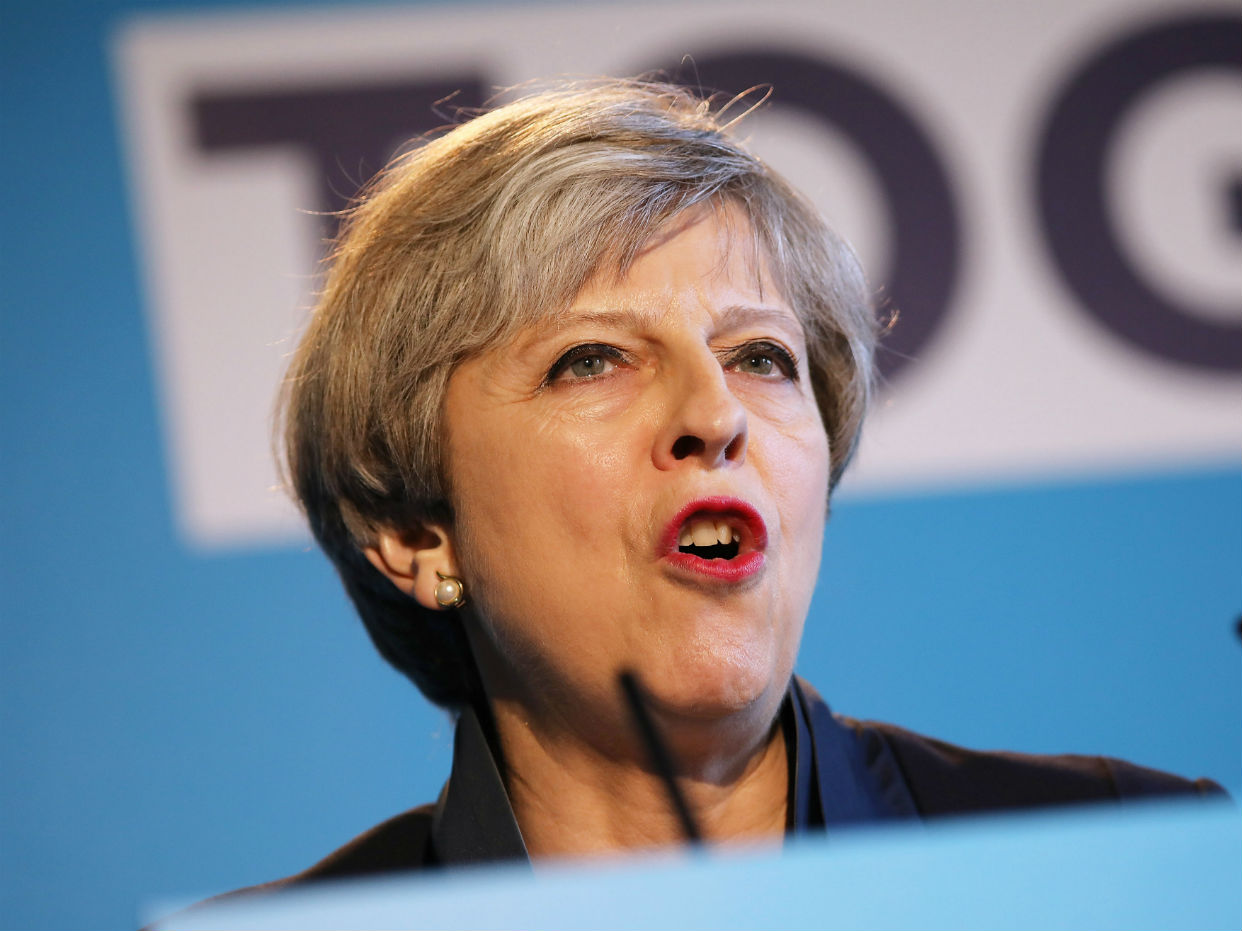Fact Check: Is the Tories' social care policy really a 'dementia tax'?
Tories poll lead slips as policy raises hackles of core elderly voters

A free daily email with the biggest news stories of the day – and the best features from TheWeek.com
You are now subscribed
Your newsletter sign-up was successful
The Tories' mammoth poll lead has been cut as low as nine points in some polls following the release of the Conservative manifesto, which most notably included a key pledge that would nominally hit core elderly voters with increased costs in the event they need in-home care services.
Opposition to the policy has crystallised around the term "dementia tax" - a parallel with the poll tax that was characterised as fatally undermining Margaret Thatcher.
Why "dementia tax"?
The Week
Escape your echo chamber. Get the facts behind the news, plus analysis from multiple perspectives.

Sign up for The Week's Free Newsletters
From our morning news briefing to a weekly Good News Newsletter, get the best of The Week delivered directly to your inbox.
From our morning news briefing to a weekly Good News Newsletter, get the best of The Week delivered directly to your inbox.
Well, let's unpack the policy a little, first.
"Currently anyone with assets of over £23,250 is expected to pay the full cost of their care. If you are in a care home or nursing home, the value of your house can be taken into account," says the BBC.
Under the new policy, you'll have a higher protected assets threshold of £100,000, but the value of your home will be taken into account even if you receive in-home ("domiciliary") care.
There is little detail on how it would work, except a guarantee that no one will be made to leave their home and that fees would be recovered after death. That essentially means it would be a state-backed equity release scheme.
A free daily email with the biggest news stories of the day – and the best features from TheWeek.com
Critics argue the majority of people who need these services are those who get dementia in old age, while cancer patients treated through the NHS for prolonged periods face no fees.
So, it is being branded a dementia tax - and that is having a very negative impact on voters.
Is it a tax?
No, it isn't.
"A tax is a cash contribution to the state's coffers, taken directly from your income or tacked on to the cost of something you buy. It is money to be pooled to finance the needs of the population as a whole," says Merryn Somerset-Webb in the Financial Times.
She cites the example of underwear – the state does not buy it for us even though it is something we all need to buy and wear, "but do you feel peeved about the 'knicker tax' every time you go into M&S?".
So why the controversy?
Quite simply, the policy is being seen as a raid on people unfortunate enough to fall ill when they get old, particularly from dementia.
Interestingly, concern is coming from both sides of the political spectrum. Right-wing Tories are aghast that people who "did the right thing" face not being able to pass on their homes, while the left is apparently angry that individuals are on the hook for uncapped social care costs.
The counter argument on the right, articulated by Juliet Samuel in the Daily Telegraph, is that limiting welfare only to those who really need it while protecting the concept of inheritance in general is "true" Conservatism in action.
On the left, Ben Chu in The Independent writes that upping the assets threshold four-fold while taking more money from property-rich pensioners in the south to cover the exponentially rising social care costs more widely is "the less regressive option".
Who is right?
First things first: it is not a tax. But then, neither is the "bedroom tax".
As for whether the policy is fair, it is demonstrably fairer than the current system, which discriminates against those too ill to stay in their own home and reduces their assets to between £14,350 and £23,250.
Arguably however, there is an unfairness at the core of the idea that some people will need to lose their homes while others do not. But to oppose this policy, one would need to either come up with a better model or scrap the entire system as it stands, instead covering all care with tax revenues.
So where does that money - tens of billions of pounds potentially - come from? A broad-based IHT tax, or a hefty increase in NI paid by working age people? Something has to give.
-
 The ‘ravenous’ demand for Cornish minerals
The ‘ravenous’ demand for Cornish mineralsUnder the Radar Growing need for critical minerals to power tech has intensified ‘appetite’ for lithium, which could be a ‘huge boon’ for local economy
-
 Why are election experts taking Trump’s midterm threats seriously?
Why are election experts taking Trump’s midterm threats seriously?IN THE SPOTLIGHT As the president muses about polling place deployments and a centralized electoral system aimed at one-party control, lawmakers are taking this administration at its word
-
 ‘Restaurateurs have become millionaires’
‘Restaurateurs have become millionaires’Instant Opinion Opinion, comment and editorials of the day